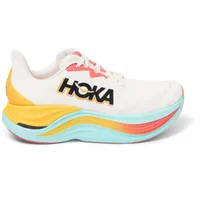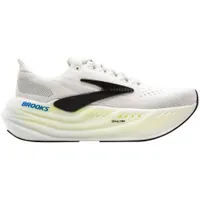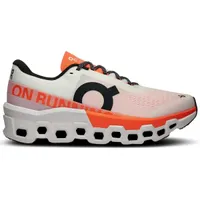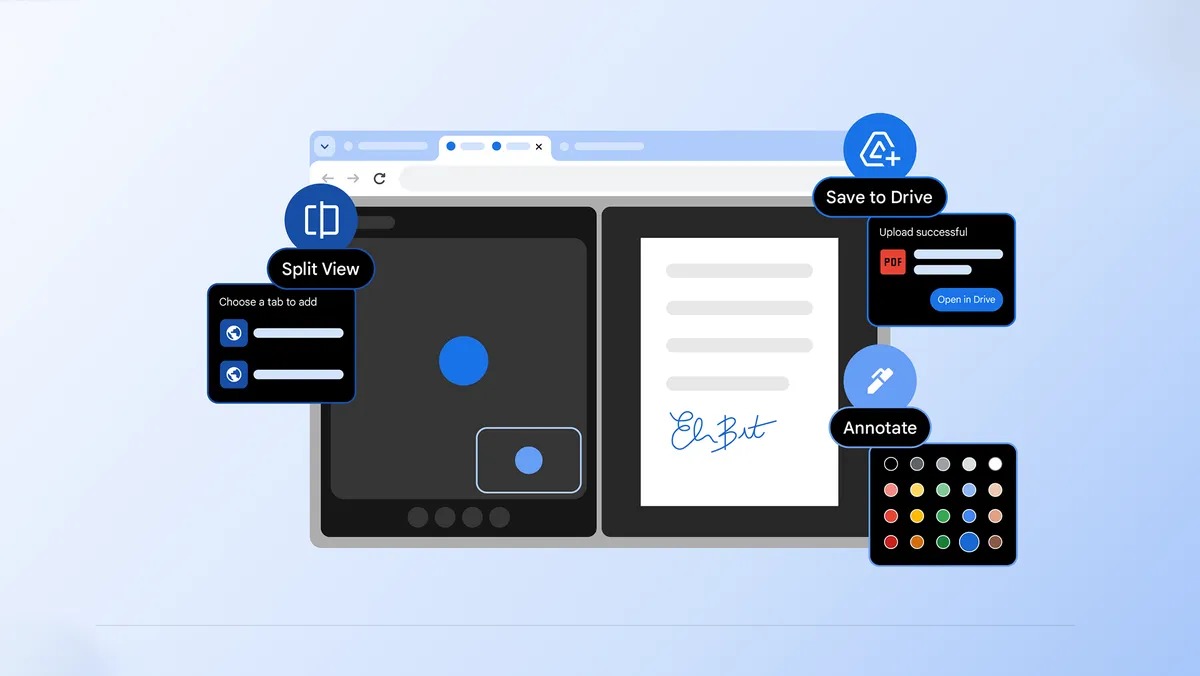Best women’s running shoes: top picks from New Balance, Brooks, Saucony and more
What is the best women's running shoe for you? Let us help
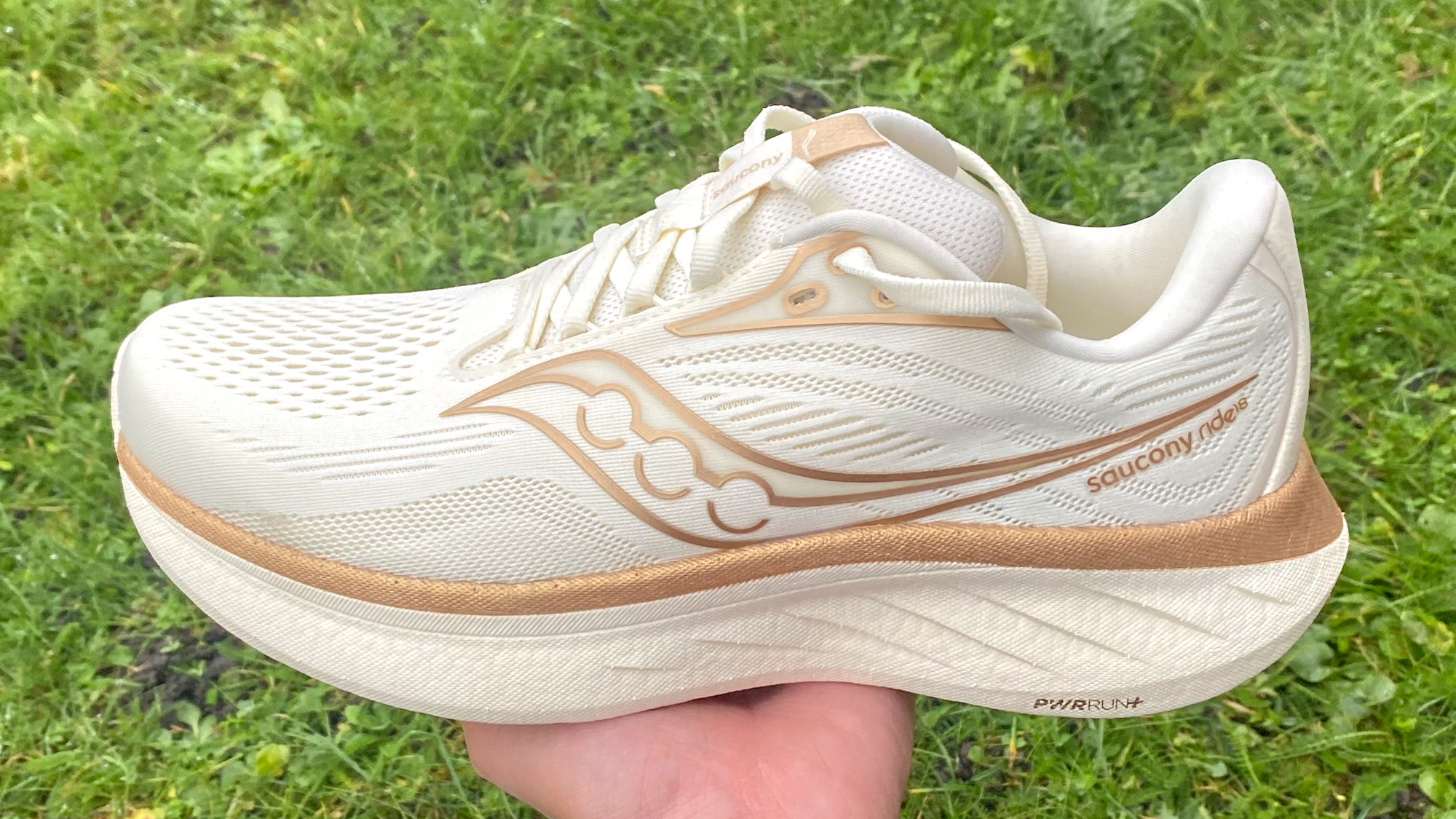
Here at Tom’s Guide our expert editors are committed to bringing you the best news, reviews and guides to help you stay informed and ahead of the curve!
You are now subscribed
Your newsletter sign-up was successful
Want to add more newsletters?

Daily (Mon-Sun)
Tom's Guide Daily
Sign up to get the latest updates on all of your favorite content! From cutting-edge tech news and the hottest streaming buzz to unbeatable deals on the best products and in-depth reviews, we’ve got you covered.

Weekly on Thursday
Tom's AI Guide
Be AI savvy with your weekly newsletter summing up all the biggest AI news you need to know. Plus, analysis from our AI editor and tips on how to use the latest AI tools!

Weekly on Friday
Tom's iGuide
Unlock the vast world of Apple news straight to your inbox. With coverage on everything from exciting product launches to essential software updates, this is your go-to source for the latest updates on all the best Apple content.

Weekly on Monday
Tom's Streaming Guide
Our weekly newsletter is expertly crafted to immerse you in the world of streaming. Stay updated on the latest releases and our top recommendations across your favorite streaming platforms.
Join the club
Get full access to premium articles, exclusive features and a growing list of member rewards.
We all know how important it is to wear a good pair of running shoes to avoid injury, feel comfortable, and perform at our best. But with so many options out there, how do you decide which women’s running shoes are right for you?
At Tom’s Guide, our female runners have put countless pairs to the test, logging miles and assessing performance to bring you the best recommendations. When choosing the right pair, it's essential to consider whether they fit well, provide the right support for your foot type and running style, and suit the surface you’re running on—whether that’s road, trail, or track.
If you're in a hurry, check out our quick picks. But if you have time, dive into our in-depth guide to the best women's running shoes, where we share hands-on insights to help you find the perfect running shoes.

Jane McGuire is Tom's Guide's Fitness Editor and she's spent years writing about all things health and fitness. She crossed the finish line of her last marathon in 3:38, with the Garmin Forerunner 965 on her wrist, and the New Balance Fuelcell Supercomp Elite V3 on her feet.
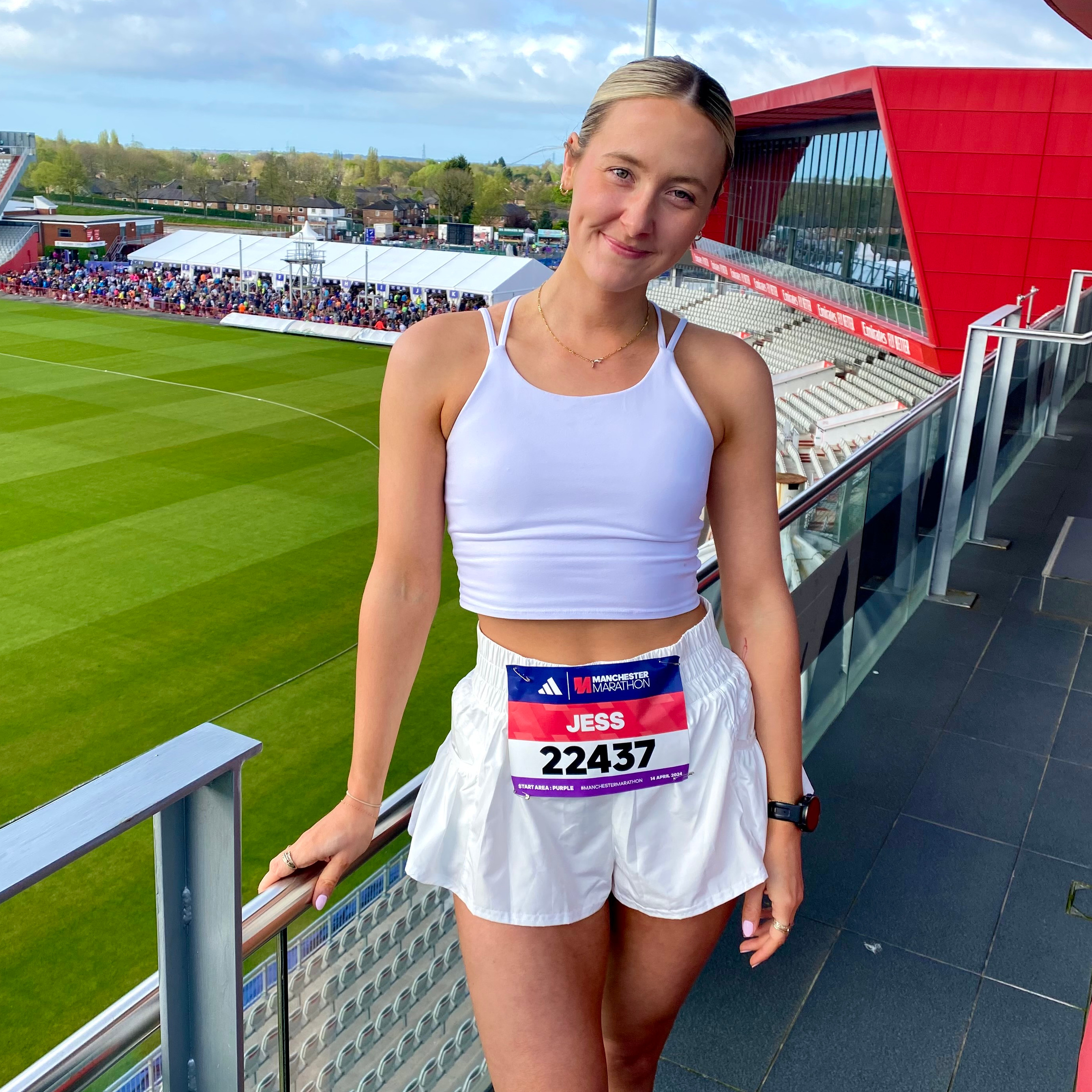
Jessica Downey is a senior fitness writer for Tom’s Guide and a lifelong running enthusiast. She ran her first marathon at the 2024 Manchester Marathon and is currently training for London 2025 while testing several of the running shoes featured in this guide.
The quick list
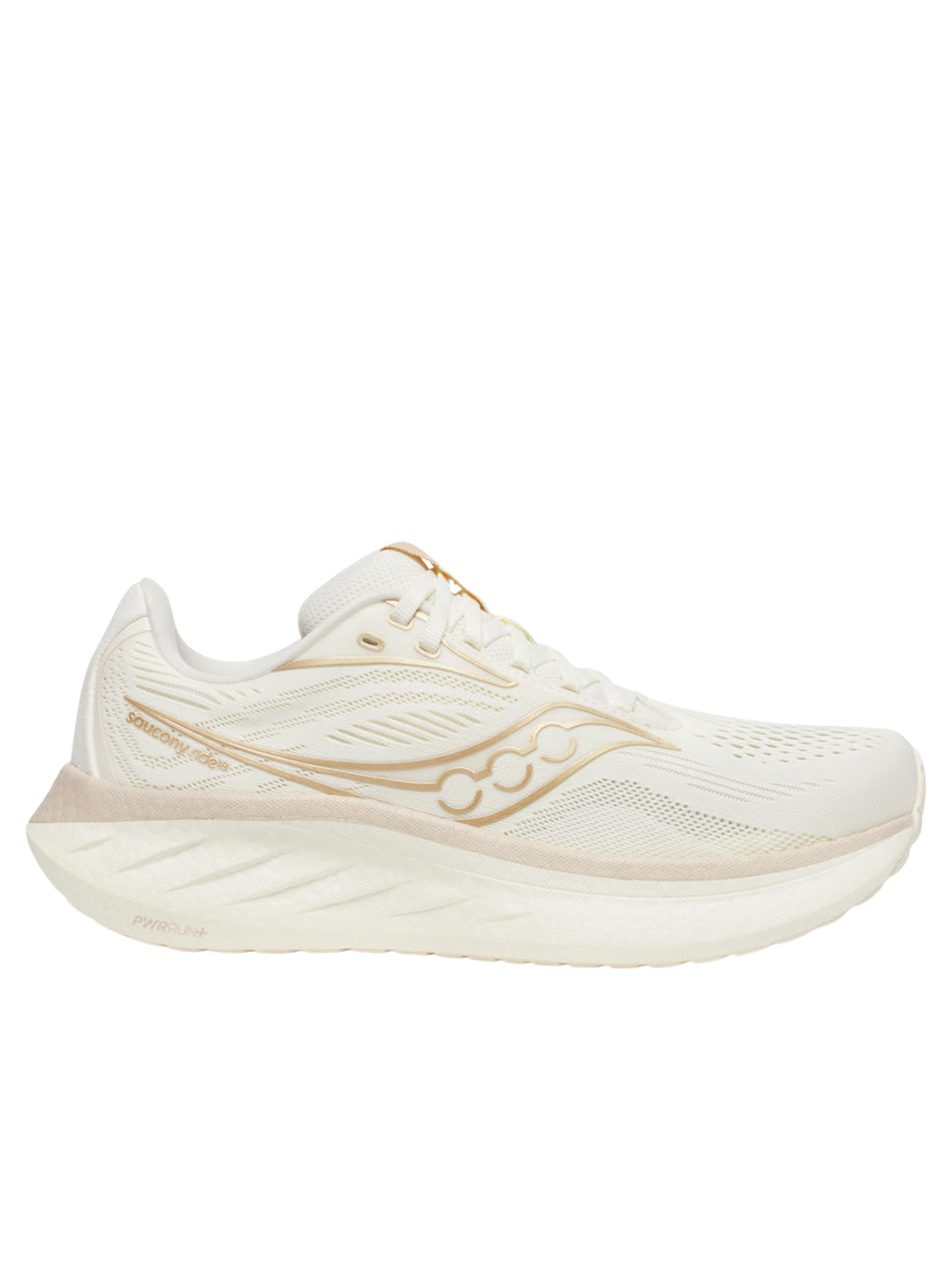
We previously named the Ride 17 our top pick, but after testing the Ride 18, we’re even more impressed, plus it’s $5 cheaper. Saucony has refined the PWRRUN+ midsole for a smoother, more responsive ride and improved the upper for a comfier, more breathable fit. Comfortable and responsive, it’s a reliable daily trainer for all runners.
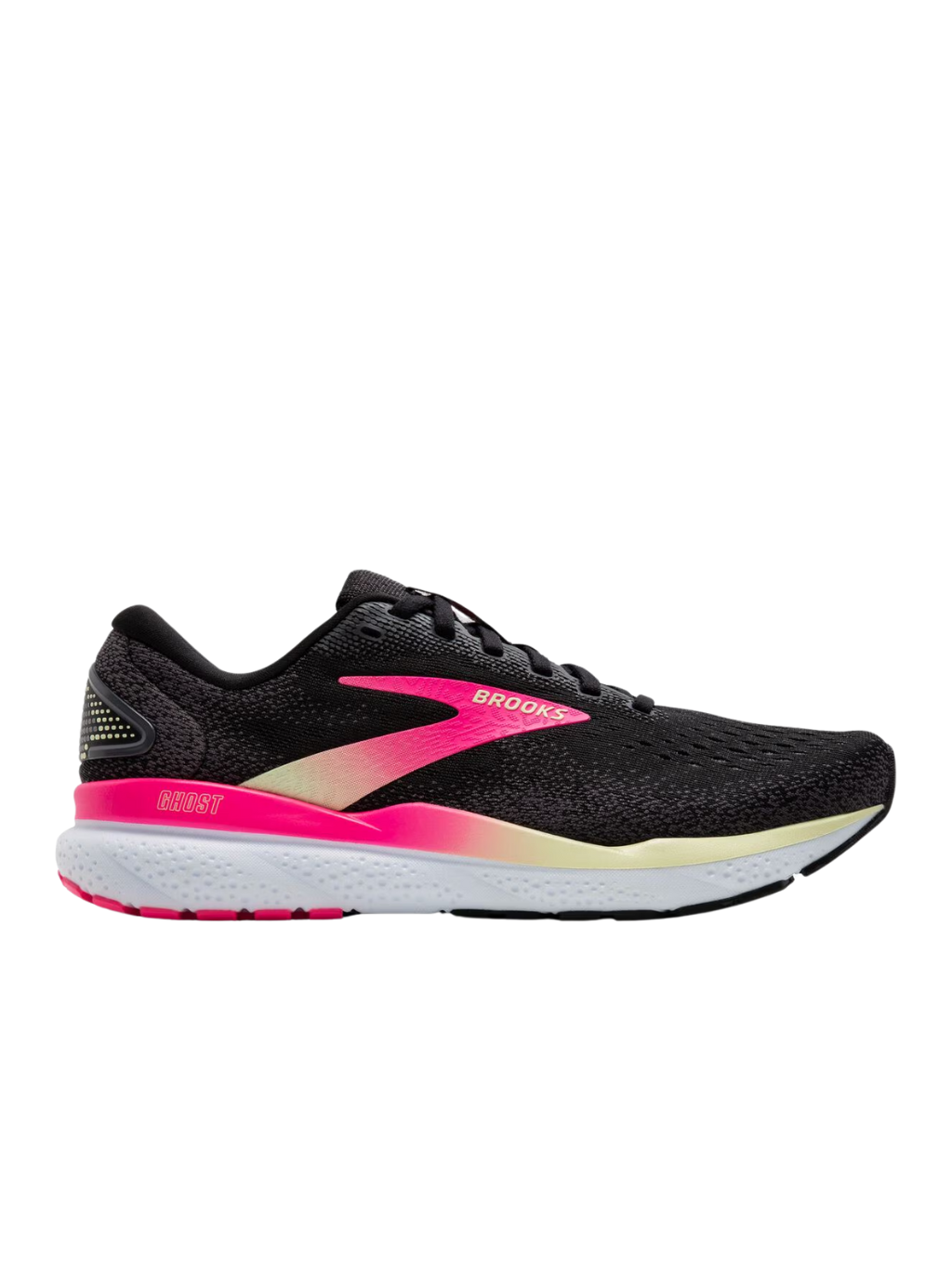
The Brooks Ghost 16 is ideal for beginners due to its exceptional cushioning, stability, and versatility. Featuring Brooks’ DNA LOFT v2 foam, it provides a soft yet responsive ride that helps absorb impact and reduce strain on joints.
Read more below
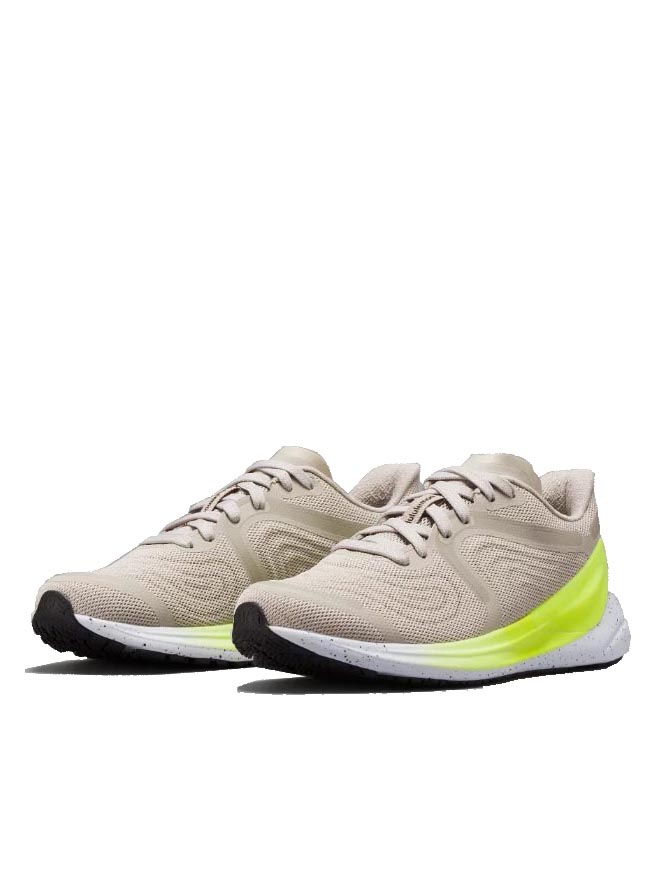
The lululemon Blissfeel 2 is an everyday running shoe, designed for women. In a world of carbon fiber plates, this is a simple shoe, that’ll get you around a 5K, or a treadmill class.
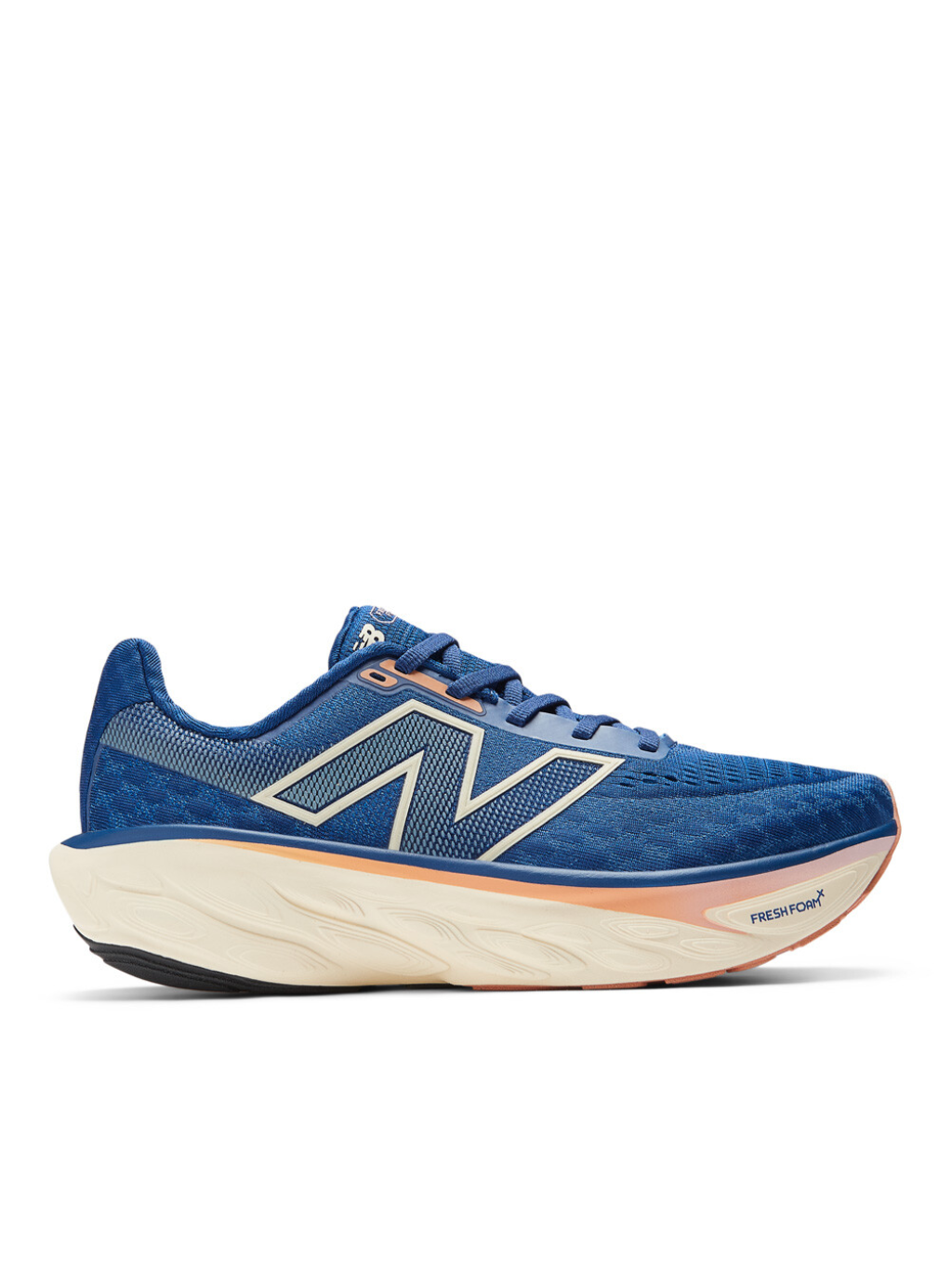
The New Balance Fresh Foam X 1080v14 offers excellent cushioning and a smooth ride. It's ideal for new runners looking for an all-around shoe and works well for experienced runners in need of a reliable option for easy, everyday miles.
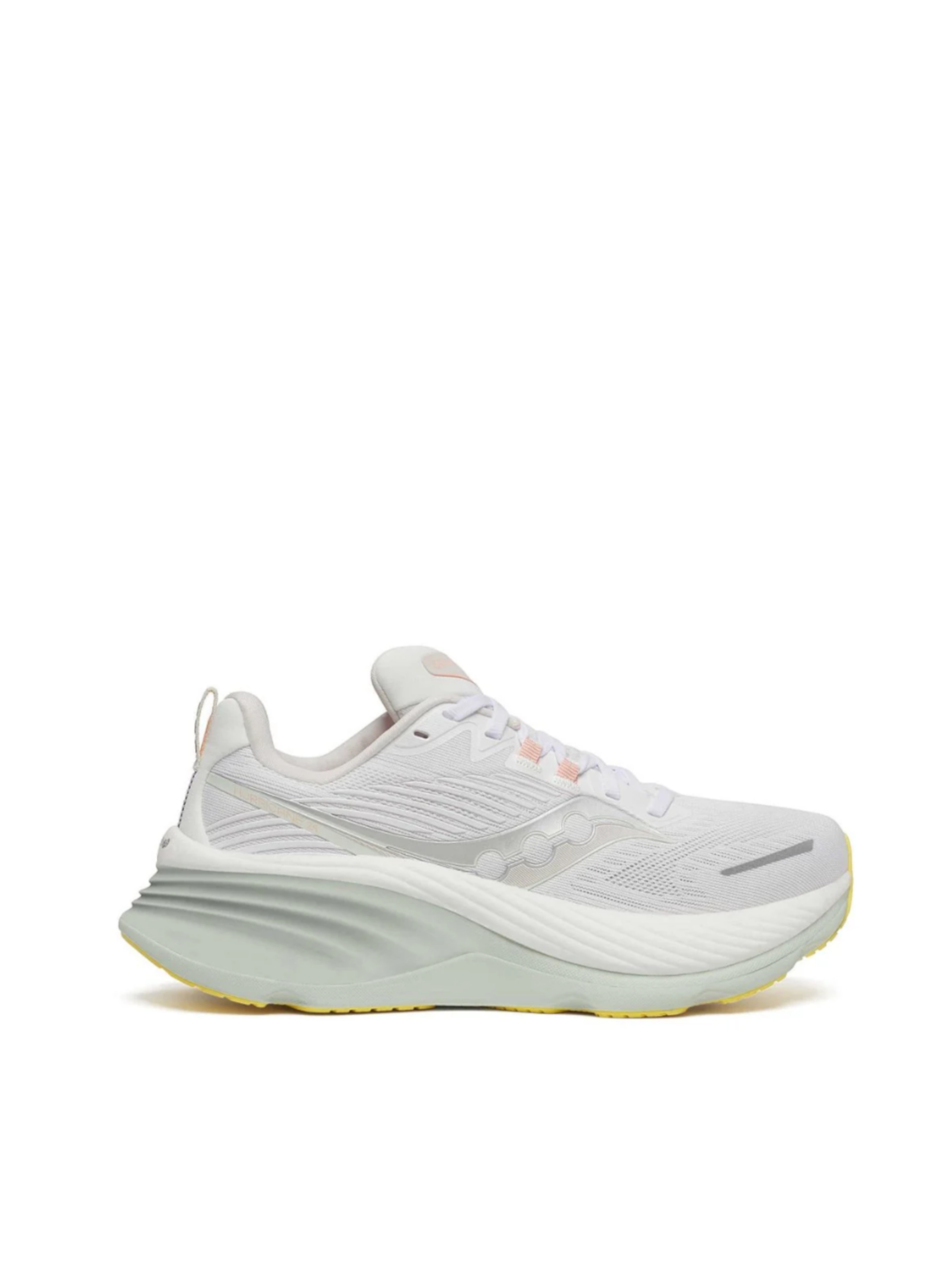
For excellent comfort and stability, the Saucony Hurricane 24 is perfect for long and easy runs. Its plush cushioning and supportive design ensure a smooth, steady ride mile after mile.
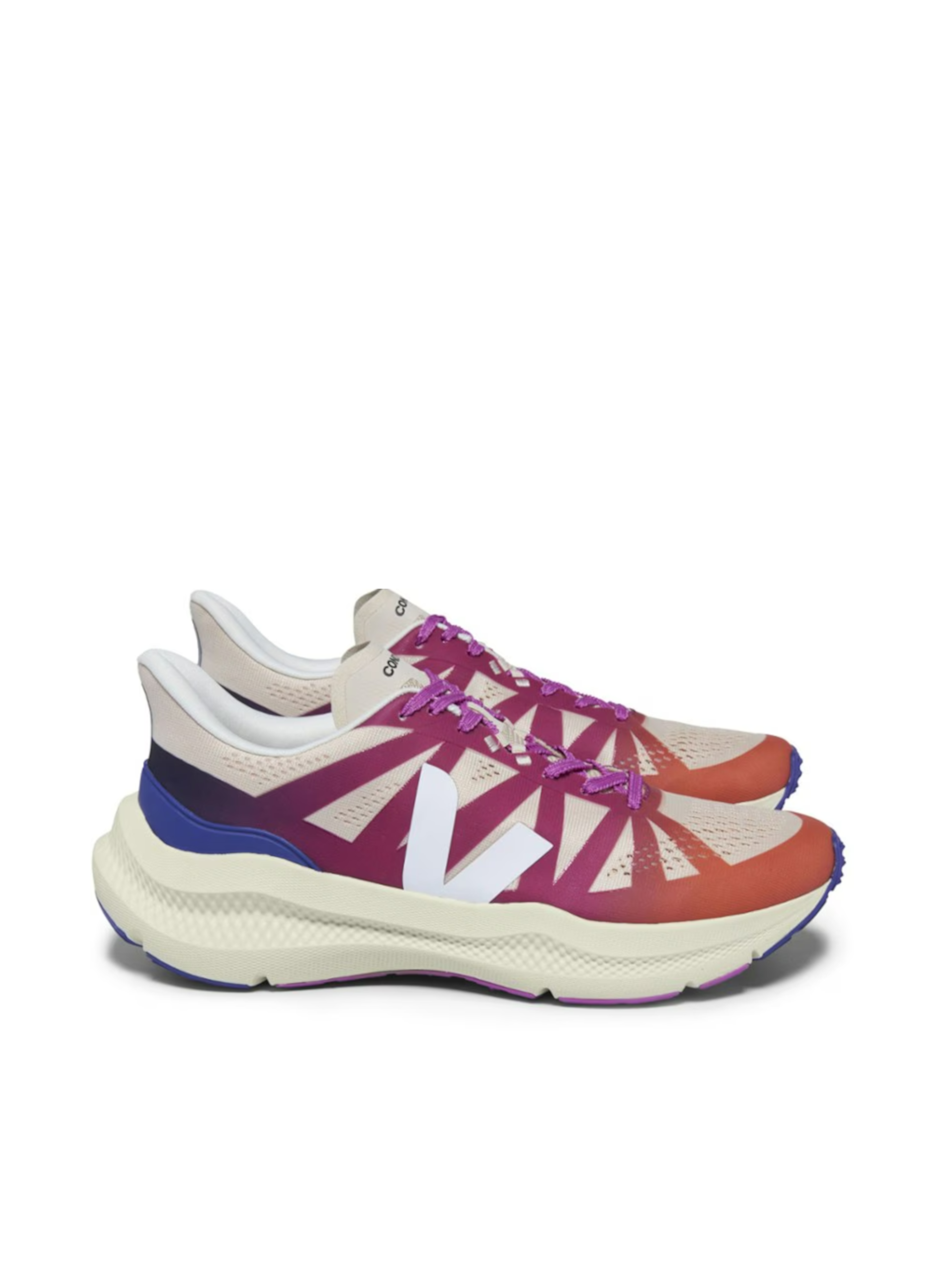
It's hard to find a sustainable running shoe because creating durable, high-performance footwear often relies on synthetic materials that are hard to recycle. However, the Veja Condor 3 is made from a higher percentage of bio-based and recycled materials. It's the best performing sustainability focused shoe we've tested, excelling in comfort.
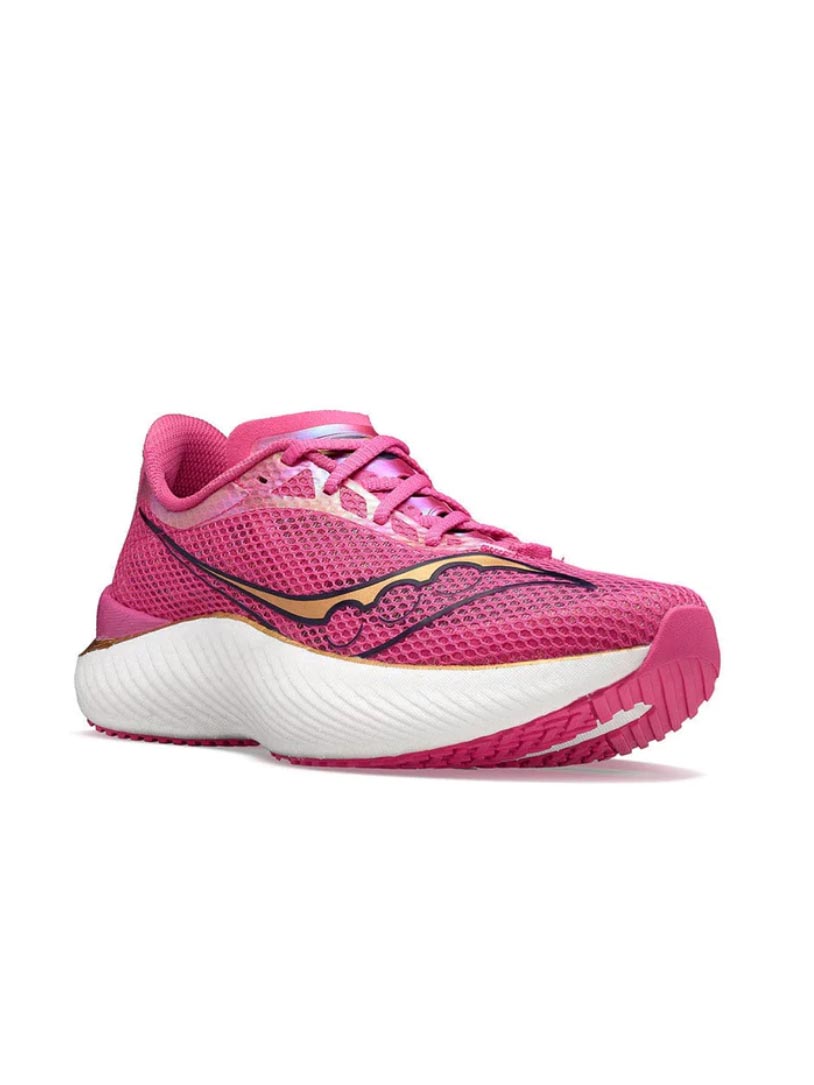
A responsive, stable race-day shoe, that we’d say is the best Saucony has ever made. It’s got an extremely lightweight upper and has a good amount of bounce underfoot.
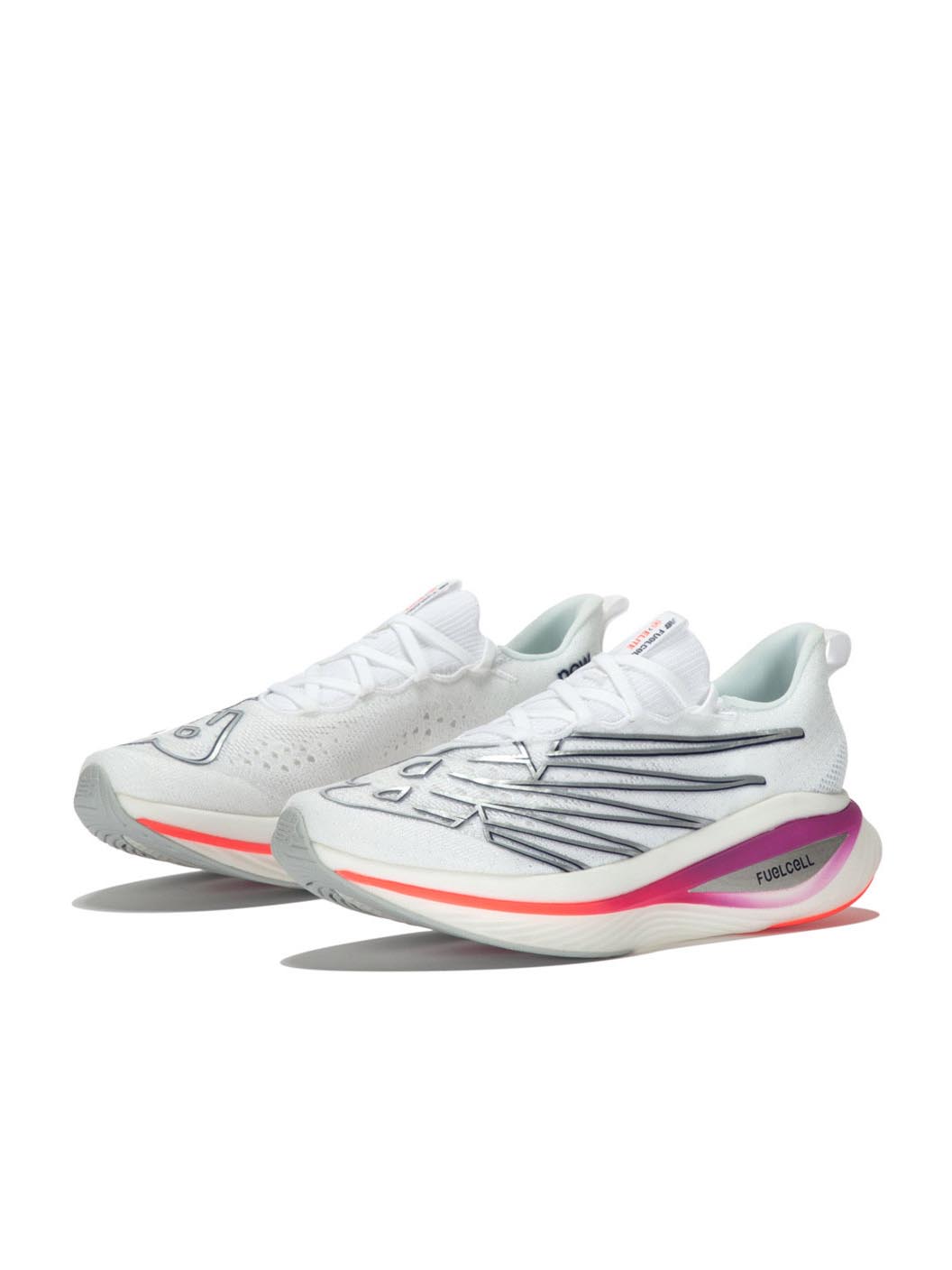
The Fuelcell SC Elite V3 is a fast, bouncy, carbon fiber running shoe, best suited for the half marathon or marathon distance. It comes up small, so size up here.
Best women’s running shoe overall

Specifications
Reasons to buy
Reasons to avoid
If you want a no-fuss running shoe that just works, the Saucony Ride 18 is a total gem. No mega max-cushioning, no carbon plates, just a smooth, comfy ride with enough bounce to keep your legs happy mile after mile.
Saucony has fine-tuned the PWRRUN+ midsole (the cushy layer that soaks up impact), making it even smoother and more responsive. I put it through its paces, from easy miles to a couple of 15+ milers, and it kept my legs feeling fresh right to the end. Sure, it’s not built for all-out speed, but it’s got enough pop to handle whatever your training throws at it.
The fit is spot on, with wide options available, and the upper has had a glow-up. It's stretchier, more breathable, and cushier around the heel for an even comfier feel. Even better, despite the upgrades, Saucony launched it at $5 less than the Ride 17. This is a solid daily trainer that will work for beginners and seasoned runners alike.
Read our Saucony Ride 17 review.
Best women's running shoe for beginners
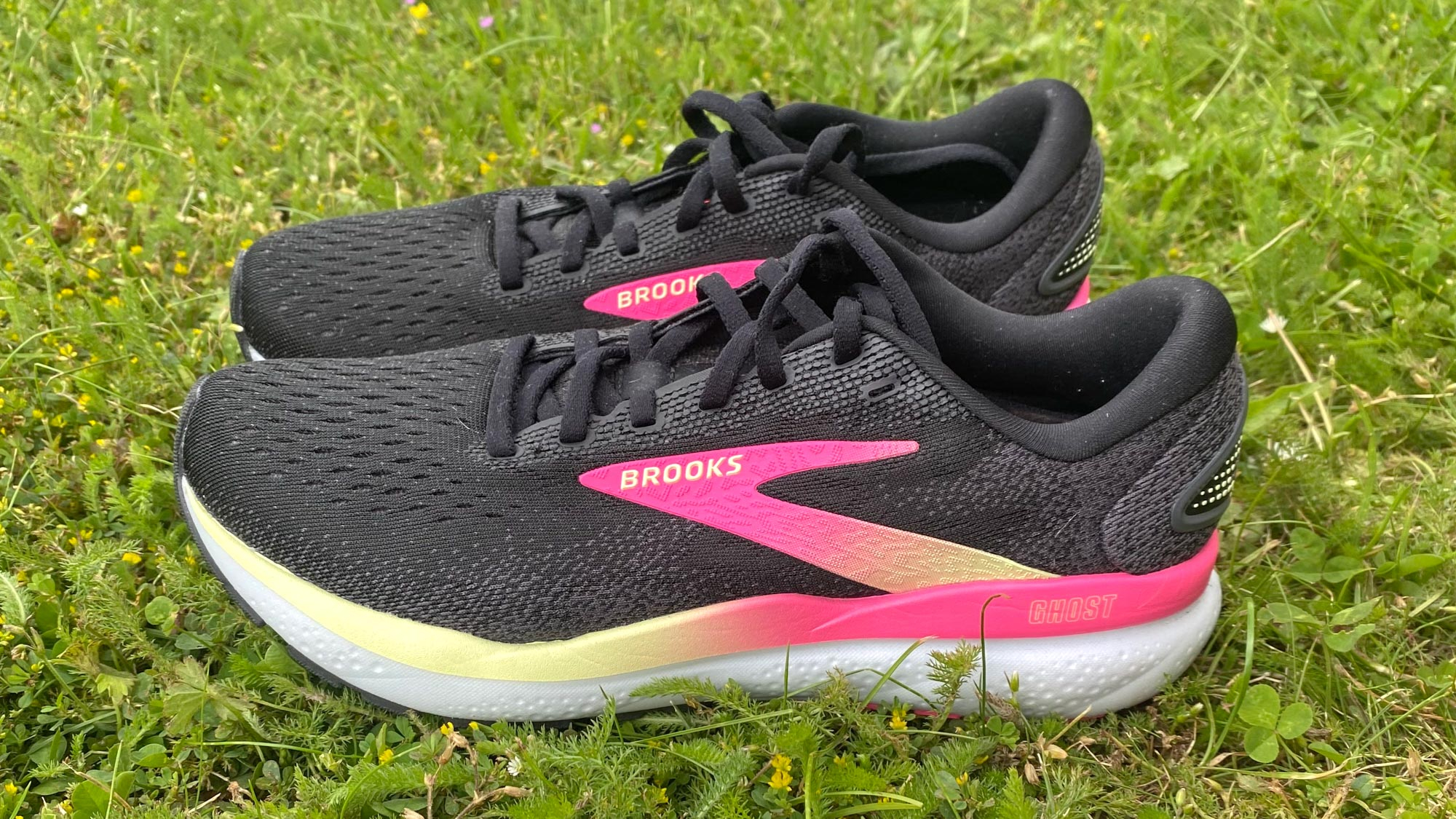
Specifications
Reasons to buy
Reasons to avoid
The Brooks Ghost 16 is an excellent choice for beginner runners, offering a reliable and comfortable ride with significant improvements over its predecessor. The shoe features Brooks’ nitrogen-infused DNA Loft v3 midsole foam, which provides a perfect balance of cushioning and responsiveness. As a result, it's an ideal daily trainer, offering both softness for long runs and a touch of bounce for faster-paced workouts.
One of the standout features of the Ghost 16 is its lighter weight compared to the Ghost 15, thanks to the new midsole foam. Additionally, the Ghost 16’s outsole offers excellent grip, making it suitable for various surfaces and weather conditions and it's a running trainer that will deliver on durability.
The 12mm heel-to-toe drop may not suit everyone, but it provides a stable and smooth ride, which is particularly beneficial for beginners. The shoe’s wide forefoot and ample padding ensure a secure and comfortable fit, even on longer runs.
From our testing we think some users may find the upper material lacks breathability, and the stiff heel counter could cause irritation around the Achilles. But, the performance of any running shoe will vary from person to person, so don't let this put you off the Ghost 16 as we were still confident this shoe's overall comfort and performance make it a solid choice for new runners.
For those just starting their running journey, the Brooks Ghost 16 offers the perfect blend of cushioning, durability, and comfort, helping to ease the transition into regular running without breaking the bank.
Read our full Brooks Ghost 16 review
Best women’s running shoe for casual running
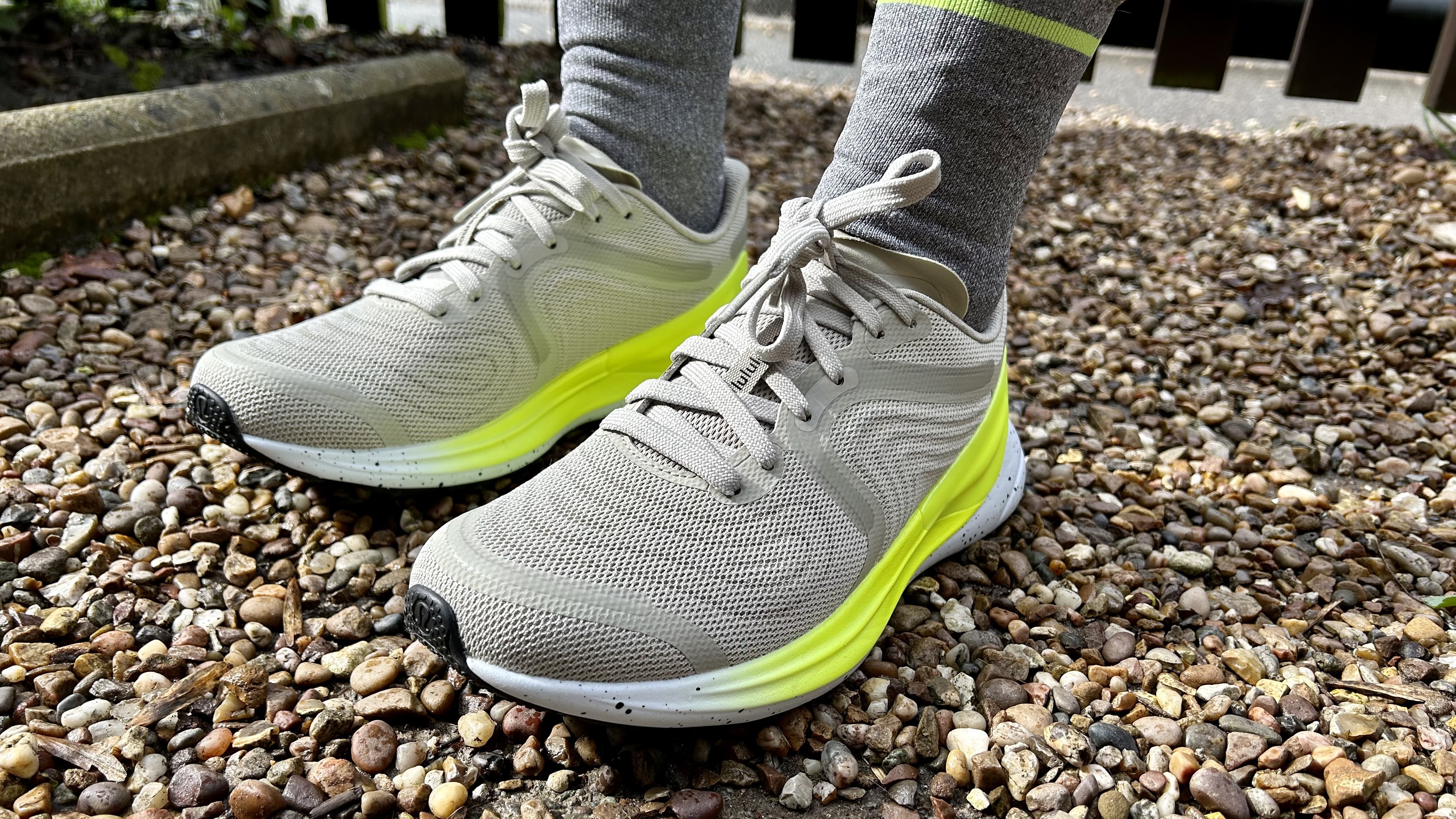
Specifications
Reasons to buy
Reasons to avoid
A year after the launch of the Blissfeel (read our full Lululemon Blissfeel review here), the brand’s first-ever running shoe, Lululemon is back with the Blissfeel 2 — an everyday running shoe, designed for women. Lululemon has made some tweaks to the fit and feel of the shoe, completely reinventing the upper to improve the underfoot experience. In a world of carbon fiber plates and huge stack heights, this is still a simple running shoe, that’ll get you around a 5K, or a treadmill class.
Out of the box, the Blissfeel 2 looks alike in style to the original version of the shoe — it has a similar silhouette, yet noticeably, the plastic rails now continue along the side of the shoe for support. Lululemon has stuck with its simple design. Fit-wise, the Blissfeel 2 fit a lot better, with a lot more room in the toebox, although I still sized up, as last year's shoe came up pretty small.
I’ve tested the Lululemon Blissfeel 2 on a number of different runs, from easy miles on tired legs to faster tempo sessions. These shoes are definitely best suited for running gentle miles, up to a 10K or half marathon, as they don’t have enough responsiveness to be my go-to for faster miles.
The midsole foam isn’t overly soft, but this isn’t necessarily a bad thing. You’re not getting a huge amount of sink-in plushness in this shoe, but there is enough midsole foam there that you’re not feeling the sidewalk beneath your feet. If you’re an overly stompy runner, I’d keep these shoes for shorter, easier miles, or for running on the treadmill.
Read our full Lululemon Blissfeel 2 review here.
Best all-rounder women's running shoe
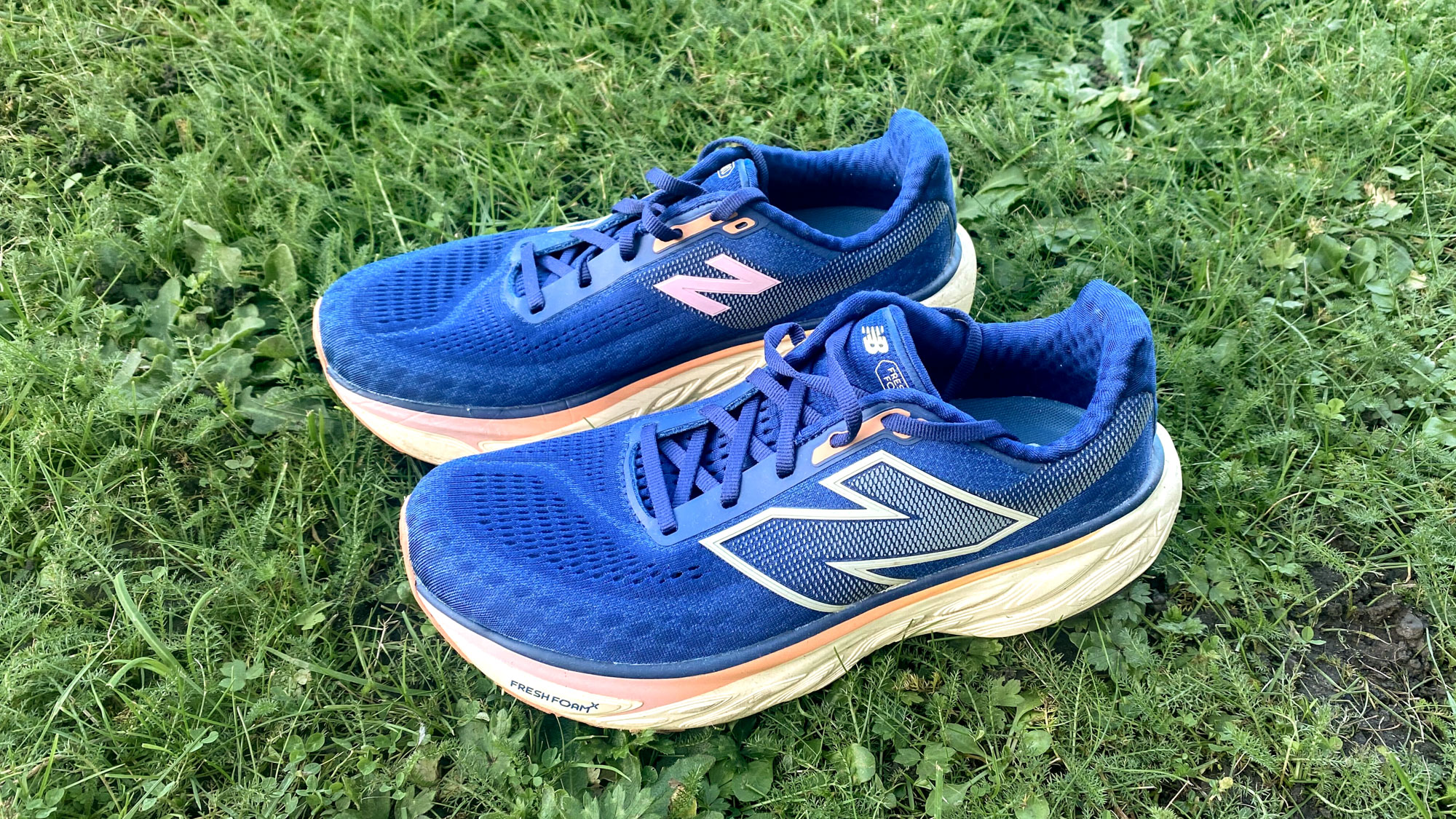
Specifications
Reasons to buy
Reasons to avoid
The New Balance Fresh Foam X 1080v14 is one of the best all-round running shoes you can buy. Having tested it extensively, I’ve found it to be a comfortable and reliable choice for everything from easy miles to longer runs.
The Fresh Foam X midsole provides soft, cushioned support underfoot, helping to absorb impact with each step. Unlike some max-cushioned shoes, it doesn’t feel overly plush or unstable, making it a great option for runners who want comfort without sacrificing responsiveness. The shoe also has a slightly firmer feel than the previous 1080v13, which makes it more versatile but may not suit those who prefer an ultra-soft ride.
Stability is another highlight. The wider base helps keep your foot secure, especially on longer runs when form can start to fade. I’ve also found the grip to be excellent, even on wet pavements, thanks to the durable rubber outsole.
The 1080v14 isn’t the lightest shoe, and while it’s fine for steady runs, those looking for a speedier option may find it a little heavy. That said, it’s a fantastic daily trainer that suits both beginners and experienced runners looking for a dependable workhorse.
Read our full New Balance Fresh Foam X 1080v14 review
Best cushioned women’s running shoe
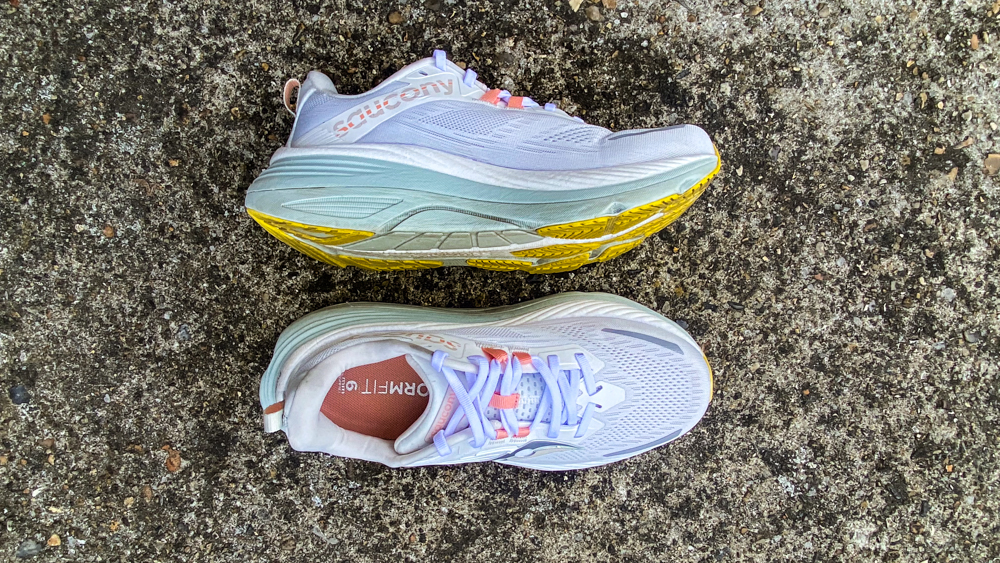
Specifications
Reasons to buy
Reasons to avoid
The Saucony Hurricane 24 has secured a spot in our best women’s running shoes guide due to its exceptional comfort, stability, and durability. We found this shoe to be perfect for runners who prioritize support and extra comfort during easy or long runs. With its high stack height and dual-density midsole, the Hurricane 24 offers plush cushioning without compromising stability. The PWRRUN PB foam provides a soft, bouncy ride, while the firmer PWRRUN frame and broad base offers excellent support for overpronators.
Despite being a little weightier, the shoe delivers a smooth, comfortable run, aided by its rocker design, making transitions from heel to toe feel effortless. While it may not be the ideal choice for fast-paced training or speedwork, it shines in recovery runs or long-distance efforts, serving up reliable cushioning for tired legs.
During testing, we also noted that it’s a versatile choice for both stability and neutral runners, thanks to the wide base and sidewalls of foam providing subtle support. If comfort is your priority, the Saucony Hurricane 24 is an excellent pick for daily training and long, steady runs.
Read our full Saucony Hurricane 24 review.
Best sustainable women's running shoe
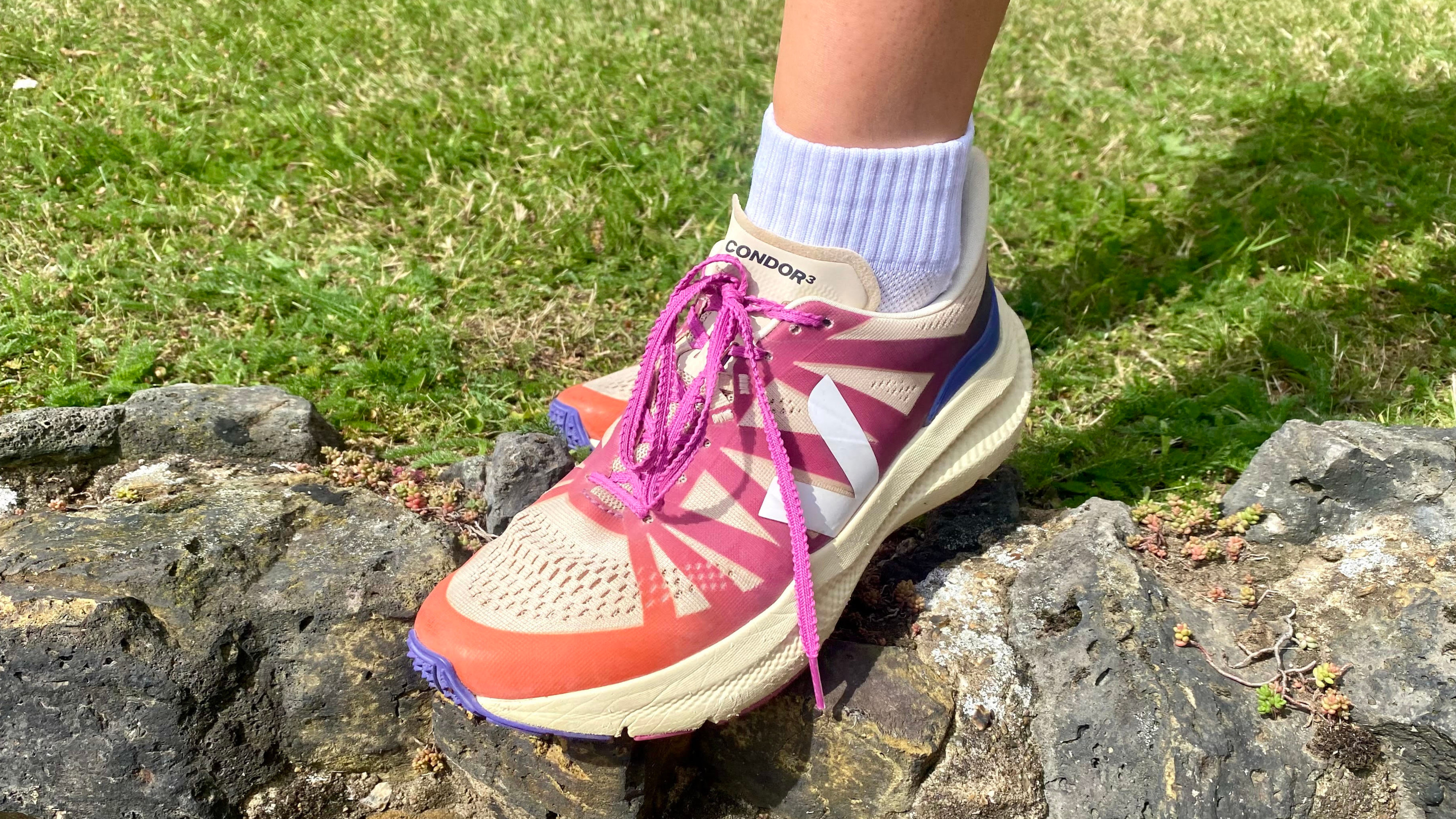
Specifications
Reasons to buy
Reasons to avoid
Running shoes are typically challenging to make sustainable because most materials used are synthetic and end up in landfills after their lifespan. Many brands are now focusing on eco-friendly materials, but this often impacts durability and, or performance. The shoe that stands out the most for us is the Veja Condor 3.
Veja prioritizes eco-friendly materials and transparency in its manufacturing process, aiming to reduce the environmental impact without sacrificing performance. From our testing, we can vouch for the brand's latest running shoe.
The Condor 3’s comfort largely comes from its midsole, made from a unique blend of sugarcane-based EVA and Amazonian rubber, delivering a surprisingly smooth and cushioned feel. It also incorporates natural latex and recycled polyester, which, along with Veja’s focus on durability, contribute to its eco-friendly design.
While our tester did find during testing that it’s not the lightest or fastest choice for speedwork, they found the Condor 3 perfect for comfortable, steady runs. Though more expensive than other options, it’s a great investment for those who prioritize sustainability with their purchases, as it outshines most in eco-conscious construction while still offering a reliable, enjoyable running experience.
Read our Veja Condor 3 review.
Best women's running shoe for speed
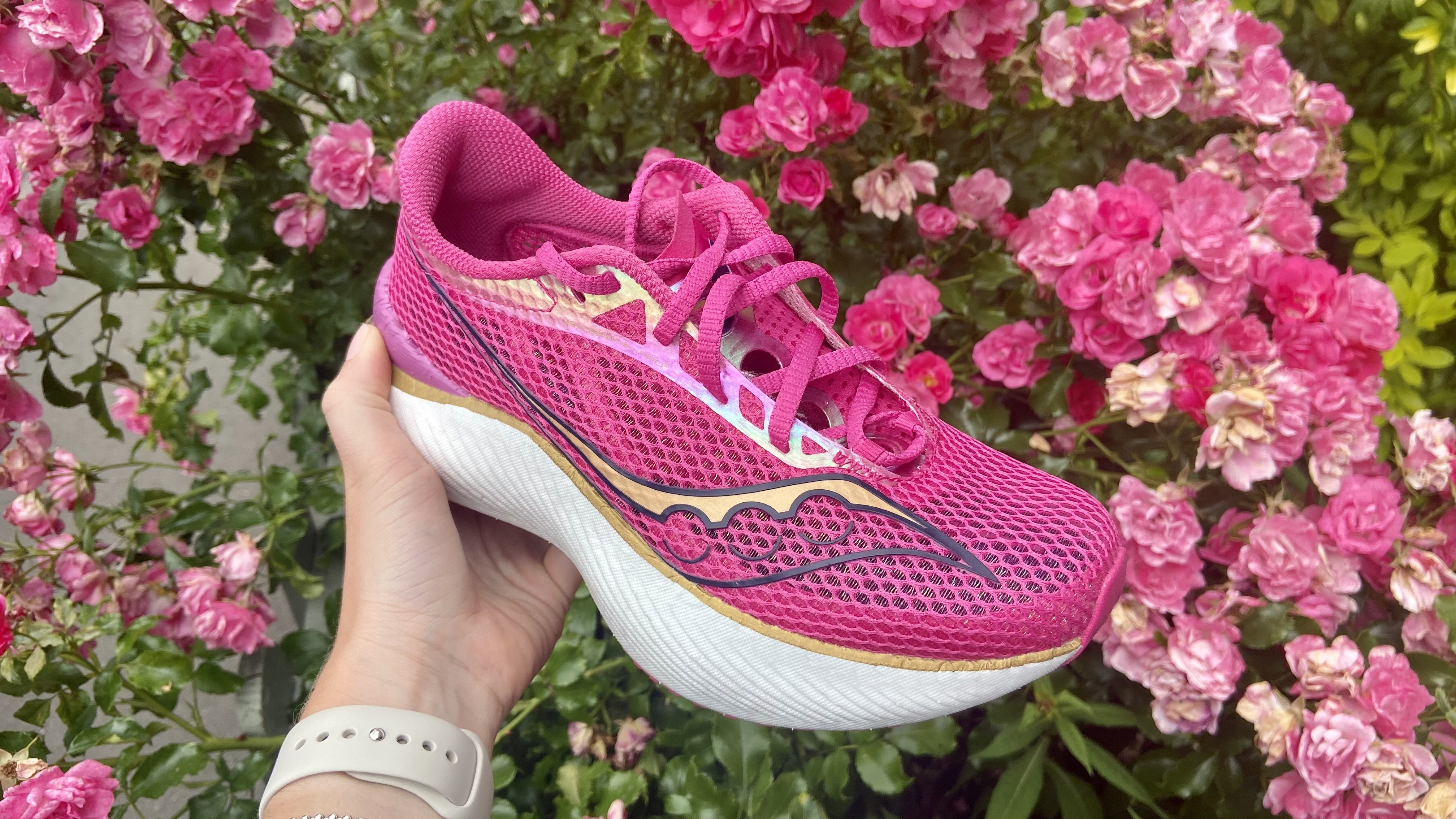
Specifications
Reasons to buy
Reasons to avoid
The Saucony Endorphin Pro 3 is a huge improvement on the Endorphin Pro 2, and is, in our opinion, the best Endorphin Pro yet. The Endorphin Pro 3 sees Saucony completely overhaul its most popular carbon fiber road racing shoe. The brand has changed the upper, and added more PWRRUN PB foam underfoot to completely change the ride of the shoe — it’s extremely fast, yet comfortable on the run.
The stack height has increased to 39.9mm, making it just legal in the World Athletics guidelines, and similar to the stack of the Nike ZoomX Alphafly Next% 2. Saucony's added more PWRRUN PB foam to make the midsole feel much softer than previous versions of the shoe. That said, it’s not overly plush, but it's comfortable and efficient, and it’s easy to pick up the pace when you need to in this shoe. The upper has also been overhauled to more of a mesh — it’s pretty much see-through and during testing I found it to be one of the most breathable uppers on the market.
Read our full Saucony Endorphin Pro 3 review.
Best carbon plated women’s running shoe
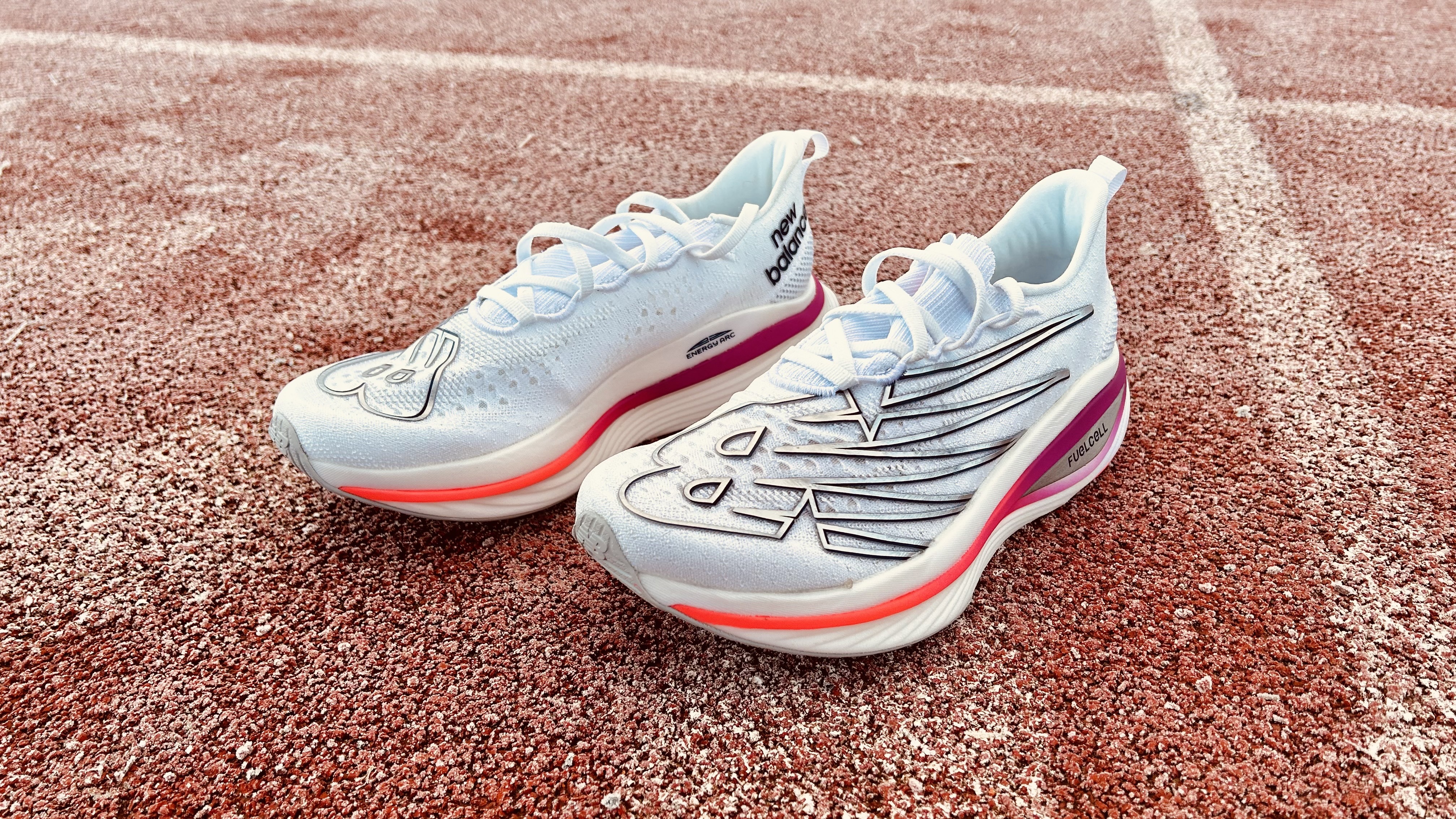
Specifications
Reasons to buy
Reasons to avoid
If you're a New Balance fan, the Fuelcell SC Elite V3 is the brand's carbon fiber running shoe, designed to get you a fast finish time on race day. It's arguably the brand's best ever carbon shoe. It’s got more pop than the RC Elite and feels much more stable around corners. It’s also similar in feel to the Supercomp Trainer, without the massive (illegal) stack height. It’s a forgiving ride, with enough cushion for long runs. We've enjoyed wearing this on the track and found I was able to pick up the pace with ease.
The magic of this shoe is in it's midsole. The carbon fiber plate sits between two layers of foam, designed to feel soft and springy underfoot. This still has the plushness and cushioning you’d expect from a racing shoe. The 4mm drop feels fast, but if you’re here for a dramatic rocker, you won’t find it here — there’s no aggressive toe spring here, and it feels more relaxed than other carbon fiber racing shoes.
This is an excellent running shoe to wear for your next race if you're hunting for a PR. It's not got the same dramatic rocker as other carbon fiber shoes on the market, but it's stable and comfortable, with enough bounce to propel you to the finish line.
Read our Fuelcell SC Elite V3 review here.
How to choose the best women's running shoes
When it comes to finding the best pair of running shoes for you, there are a few different things to consider. Firstly, how you run — like finding the right sports bra, there will be certain brands that just fit your foot better than others, so it’s a good idea to head down to your local running store and try on as many brands as possible. It’s also worth knowing whether you’re prone to overpronating when you run, as you might find you need to buy a pair of stability shoes to help this.
Secondly, it’s a good idea to think about the type of running you plan on doing. If you’re looking to PR on race day, you’re probably going to want something lighter, snappier, and faster. If you’re just trying to get around your first 5K, you’ll just want something comfortable and supportive, that won’t rub or leave you with blisters on the finish line.
Finally, the type of surfaces you’re running on mostly. Most road shoes will be able to cope with wet pavements, treadmills, and light trails, but if you’re planning on heading out on more technical terrains, you’ll probably need to invest in a pair of trail running shoes, which will have a deeper, grippier tread.
After you've picked out a pair of running shoes, you may want to consider one of the best running hats to keep you cool and protected on sunny runs.
How we test the best women's running shoes
We test the best women’s running shoes by running in them; we’ve clocked at least 50 miles in all of the shoes mentioned on this list. We also look at the fit of the shoe as well as the feel underfoot. We’ll test the shoes on several different sessions, from faster runs on the track to longer training runs — some shoes will be great on a long run, but feel heavy during a speed session. We also look at any impressive features of the shoe, such as carbon fiber plates, or ultra-lightweight midsole foams.
Also tested
Hoka Skyward X
The Hoka Skyward X excels in cushioning, stability, and smooth transitions, making it ideal for long, easy runs. However, its heavier weight and high stack height make it less suitable for speedwork or race day.
Read our full Hoka Skyward X review
Brooks Glycerin Max
This shoe is a good option for daily training, with plenty of cushioning that provides comfort and a decent energy return on each step. However, it leans toward the heavier side, which may make it less ideal for bigger mileage. If you’re looking for a lighter or more budget-friendly trainer, there are better options.
Read our Brooks Glycerin Max review
On Cloudmonster 2
While we appreciated the extra cushioning On added to the Cloudmonster 2, we found the added weight didn’t improve the performance of this shoe. If you want to save some money, we recommend opting for the original Cloudmonster featured above.
Read our full On Cloudmonster review
Get instant access to breaking news, the hottest reviews, great deals and helpful tips.

Jane McGuire is Tom's Guide's Fitness editor, which means she looks after everything fitness related - from running gear to yoga mats. An avid runner, Jane has tested and reviewed fitness products for the past five years, so knows what to look for when finding a good running watch or a pair of shorts with pockets big enough for your smartphone. When she's not pounding the pavements, you'll find Jane striding round the Surrey Hills, taking far too many photos of her puppy.
- Jessica DowneySenior Fitness Writer
 Club Benefits
Club Benefits










